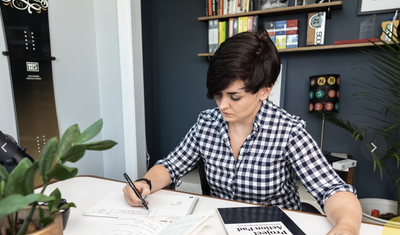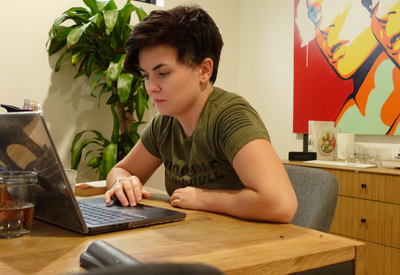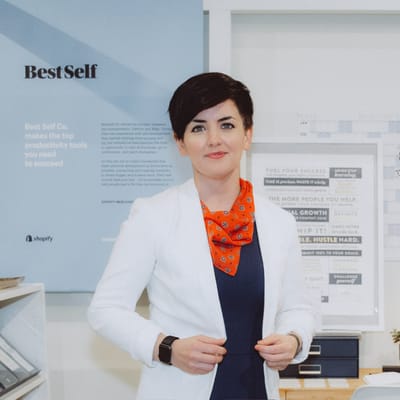
We’ve likely all heard the saying “Your network is your net worth”
Well in 2011 when I moved to the USA from Ireland I knew only 3 people nationwide never mind in NYC, a city of over 8 million people.
I also had around $750 in total to my name, so both my network and my net worth (once I paid rent) were effectively zero… and I was (and still am) an introvert.
Since then I’ve gone from being an introverted architect who knows no-one to an entrepreneur with a powerful network (and still an introvert).
Let me share a little about how I built, maintained and strengthened high-quality relationships.
First, what is a powerful network?
Is it hanging out with Tony Robbins or Tim Ferris in Fiji?
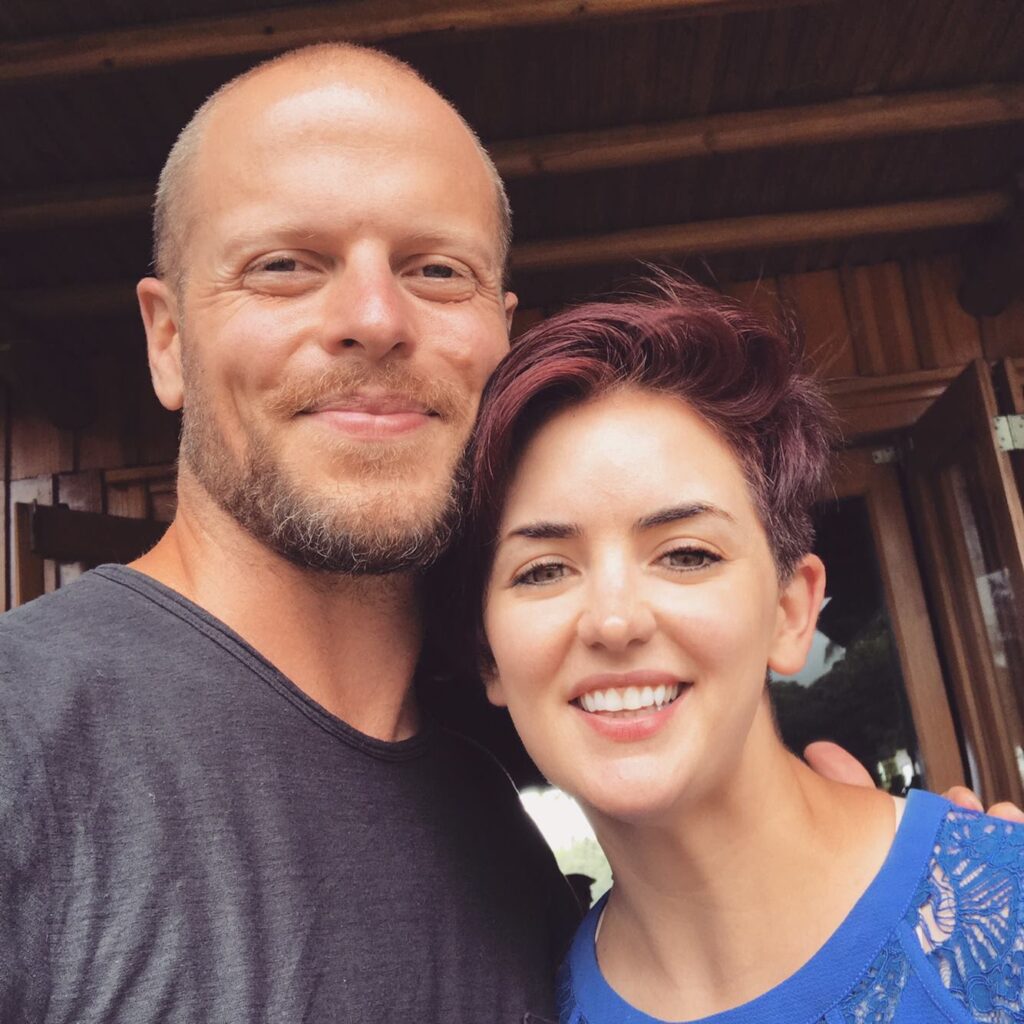

Playing Monopoly with Daymond John?
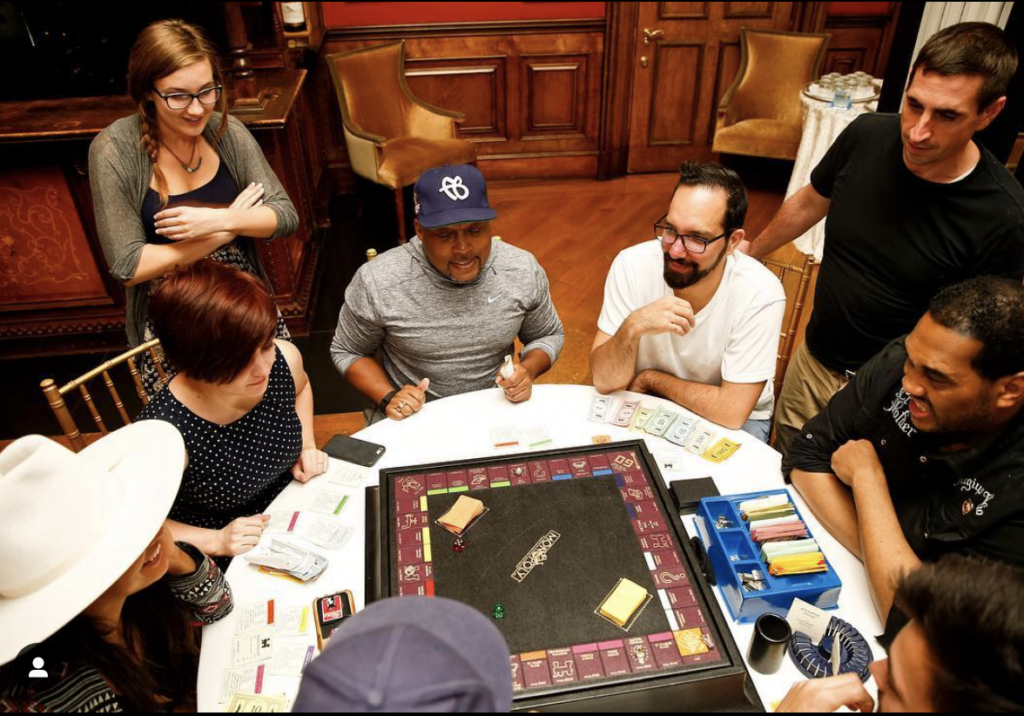
Being able to be on a Zoom call with Tobi Lutke (CEO & founder of Shopify.com)
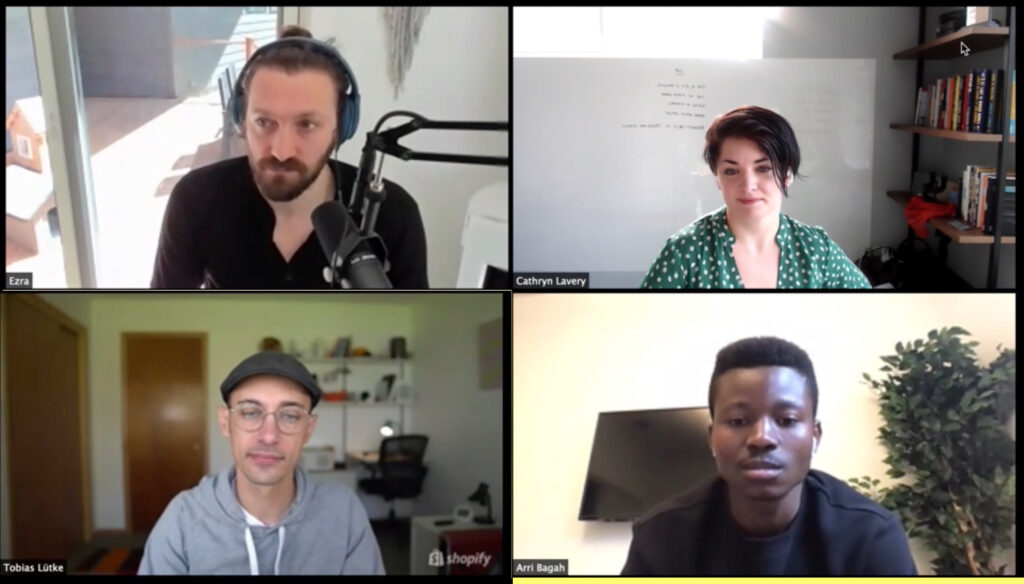
(Maybe? But I really posted the pictures to keep you engaged )
The thing is, this person in these pictures wasn’t me, at least it wasn’t back then. Had you told me that I would be able to create this type of network of people who would even know my name, I would have thought you were crazy.
I wasn’t a “networker”. I was the person who avoided the limelight (or pulled someone in to share it with me). I spoke to only a handful of people at events and let out a sigh of relief once I was able to leave having met my internal quota of socializing. If we just met you would think of me as shy, mysterious and to some, aloof.
That person in those pictures wasn’t me…. yet.
But then I started getting into personal development and reading more about what successful people do. I read the now-famous quote “You are the average of the 5 people you spend the most time with”.
When I looked around I realized no one was living the life I aspired to, so I knew I had to find my people.
That’s when the intentional work began to create a network of people I could aspire to be more like.
The Power of Relationships
Humans are social beings. We thrive and are at our best when we feel connected and included — even if we’re introverts.
Studies have shown that a lack of social interaction not only leads to loneliness but is linked to a range of harmful health effects. In fact loneliness could be the new smoking as a lack of community makes us less happy, our health declines earlier and we live shorter lives.
Building your network is about creating a social structure of people that inspire and empower you to be your best and grow with you.
Over the past 6 years, I have been intentional with creating a powerful network.
What is a powerful network exactly?
- Relationships with people who are top of their field
- People who are where you are or where you want to be. They have experience with similar problems/challenges as you
- People who are there for you because of who you are — and not because they believe they can get something out of you
- Genuine connections; focus on quality of relationships vs quantity of relationships
- People who think of you when certain situations or circumstances arise
So no, a powerful network to me isn’t about famous names, but about high-quality relationships with high-quality people who you can invest in for the long term.
Before we jump into how to do this, let’s first clear up a common misconception about introverts.
Introvert ≠ Anti-Social
Being introverted is an energy thing related to how you respond to stimulation. Therefore, being introverted is not an excuse for not being social or a hurdle in building your personal network.
It’s like saying you can only take a road trip to California in a gas-powered car like an Audi vs a Tesla.
False. Both will get you to your desired destination, they’re just fueled differently.
A Tesla will need more time to fuel up after a long trip and may need more stops during, (much like an introvert might after a social gathering) but it can still get you to the same place as an Audi… and more quietly too, much like an introvert also.
Manage your Energy not your Time
If you’re an introvert, focus on your strengths, which is usually 1:1 attention rather than 1:many.
When trying to connect with people, don’t concern yourself with the quantity of people you speak with but the quality of conversations you’re having.
This happens one-on-one or in small groups.
“Most people do not listen with the intent to understand; they listen with the intent to reply.” Stephen R. Covey
A natural talent of introverts is that they are skilled at active listening and processing information internally. This allows us to build more meaningful deep connections as we are really listening to what someone is saying, which allows us to truly understand who they are.
At an event, I’ll typically speak to a lot fewer people than my peers but come out with deeper connections. This is because rather than have small-talk conversations with 50 people that create no impact – I’ll speak with only 5 but create a meaningful, genuine connection.
I also know when I’m done I’m really done and I manage my energy accordingly. This means if I’m at an event and I’m feeling low-energy, I’ll retreat to somewhere alone to regroup rather than force myself to stay social and meet more people.
You only get one shot at a first impression and I know I won’t make the best impression if I’m tired and low-energy so I’ll dip out. I’m a big fan of the Irish exit.
Takeaway: Learn to be okay with managing your energy and being okay with making fewer connections but going deeper with those people. These are the connections that will probably last longer than those who run around handing their business cards to everyone.
Don’t Overdraft Your Relationships
Whether you’re an introvert or extrovert, think of your relationships like a bank account.
You need to first deposit money into a new account before you can make a withdrawal.
When you’re building a relationship you should focus on giving value where you can (making deposits) into the relationship before creating an ask from the other person (making a withdrawal).
When I first began my journey and transformation from being an architect to an entrepreneur, I was very insecure about my lack of skills and had severe imposter syndrome. This caused me to both be in learning mode to gain new skills/confidence and also constantly feel the need to prove my value to others in the industry.
Looking back this insecurity helped me build my network a TON as I was always adding value. Proving my value showed up as always ensuring I was putting deposits into my relationship accounts by creating surplus value wherever I could.
“All the real benefits in life come from compound interest — money, relationships, habits.” — Naval Ravikant
Always engage in long-term thinking. When we think long term we apply second-order thinking and consequences to our actions, decisions and behaviors.
Takeaway: Everyone likes someone who gives more than they take. The opposite of this is a person in constant overdraft status which is not a smart long-term investment.
Help others solve problems (bonus: permissionless)
Here’s a secret; everyone wants to succeed. Success boiled down to the first principle thinking is this; solving valuable problems.
If you can help someone do that it will help them succeed and strengthen your relationship with that person.
When we can solve a problem without having them ask — it’s even better.
Why? Because it’s clear you have both considered them, listened to them or know/care enough to be aware of the problems they have and put in the effort to solve it for them.
I say “permissionless” as often if someone asks me if they can help me with something, they are placing the burden on me to give them a task to help with.
Unless it’s already top of mind, now you just gave me another job to do…
Instead, find a problem someone has and solve it without asking them permission to do so. This is 10X more valuable and something I have used for years to grow and strengthen my network.
Here’s how this can look in real life:
- Help solve problems or find opportunities
See a job posting at a friend’s company? That’s a problem they have and need help to solve. Share the post with your network and connect with anyone you know who would be an excellent fit for review. - Become an Intellectual Matchmaker
Connect with people within your network that would enjoy or benefit from knowing each other. Ask permission before you make the introduction and also drop in some ways you believe they could benefit from knowing or what each may need help with. The worst thing to do is to connect two busy people with no detail, you just added another chore for them. - Abundant with resources
Share a resource that you used to solve a problem with someone else who might have the same problem (this is great for Twitter also)
Become a connector
If you’ve read Malcolm Gladwell’s book The Tipping Point you know about the term connectors. Connectors are the go-to people who make things happen and have a vast network of connections to go to when they need it.
I dislike the word ‘network’ because it seems icky and transactional. I want you to think of yourself not as a networker, but as a connector.
This is not something that will be done overnight but over time if you’re consistent.
How I’ve done this:
I’ve hosted dinners to bring people together. Pre-coronavirus I was doing 6-8 of these per year where I invite 6-8 people to dinner so they can meet each other.
When I first started doing these years ago, I would co-host with a friend where we each invited 2 people to dinner that the other didn’t know and that way we helped each other grow our network.
People love connecting and it’s really fun to be a connector so I highly recommend the dinner or hosting of events.
Show up and support! This seems simple and it is… but showing up for people and supporting their projects goes a long way in a relationship so whether it’s sharing on social media, liking a post, commenting, going to a show, whatever it is — show up! It gets noticed.
In this video, I share how I created a powerful network as an introvert, and how I built, maintained and strengthened high-quality relationships:
Action Items:
- Create your Connections List
List out your top 25 – 45 relationships you want to work on. Even if some are only weak ties that’s fine, it’ll give you the people to focus on. - Create a System for Connecting
or some simple way to manage these connections (so you’re not leaning on your memory for this.) For each person try to include personal details like their birthday, books mentioned, any recommendations given, etc. - Schedule time for Building & Connections
Block 1 hour a week in your calendar and see how you could add value or help one of these people. I do this 1-2 times a month, and typically throughout the month I’ll note some ideas to remember so when that scheduled time comes I already have a good starting plan. - Schedule important relationships
Whether it’s setting up a recurring Zoom call with a friend or a monthly dinner. Create a schedule so that you’re blocking out time for these relationships.
For example: one of my closest entrepreneur friends, Frank and I have been doing weekly calls for 30 minutes on Tuesdays since 2015 – over 5 years! Other friends, I have recurring bi-weekly or monthly calls to keep in touch. My fiancee and I have a weekly dinner set up with our friends Nat & Cosette – switching off cooking each week. - Share resources & help where possible
Share resources/tools/events you think a connection would find interesting or useful. Aside from hosting dinners I also would recommend other fun group activities like paintballing or escape rooms — and arranging doesn’t mean paying for it if you don’t want to, just making the plans is a huge value-add for people. - Don’t take “I can’t make it” as a rejection
Lastly, keep inviting people even if they can’t make it often. Chances are you’re trying to connect with busy people so don’t take a “I can’t make it” as a rejection. For example; I had a friend who would travel a lot and he often couldn’t make things but I’d always drop a text invite anyway and he told me later how much he appreciated my invites. “Please keep inviting me!”).
If you do these things consistently you will be on your way to both growing yourself and building a powerful network.
Have more questions about growing your network? Drop a note in the comments and I’ll help in any way I can.
Become a subscriber receive the latest updates in your inbox.


